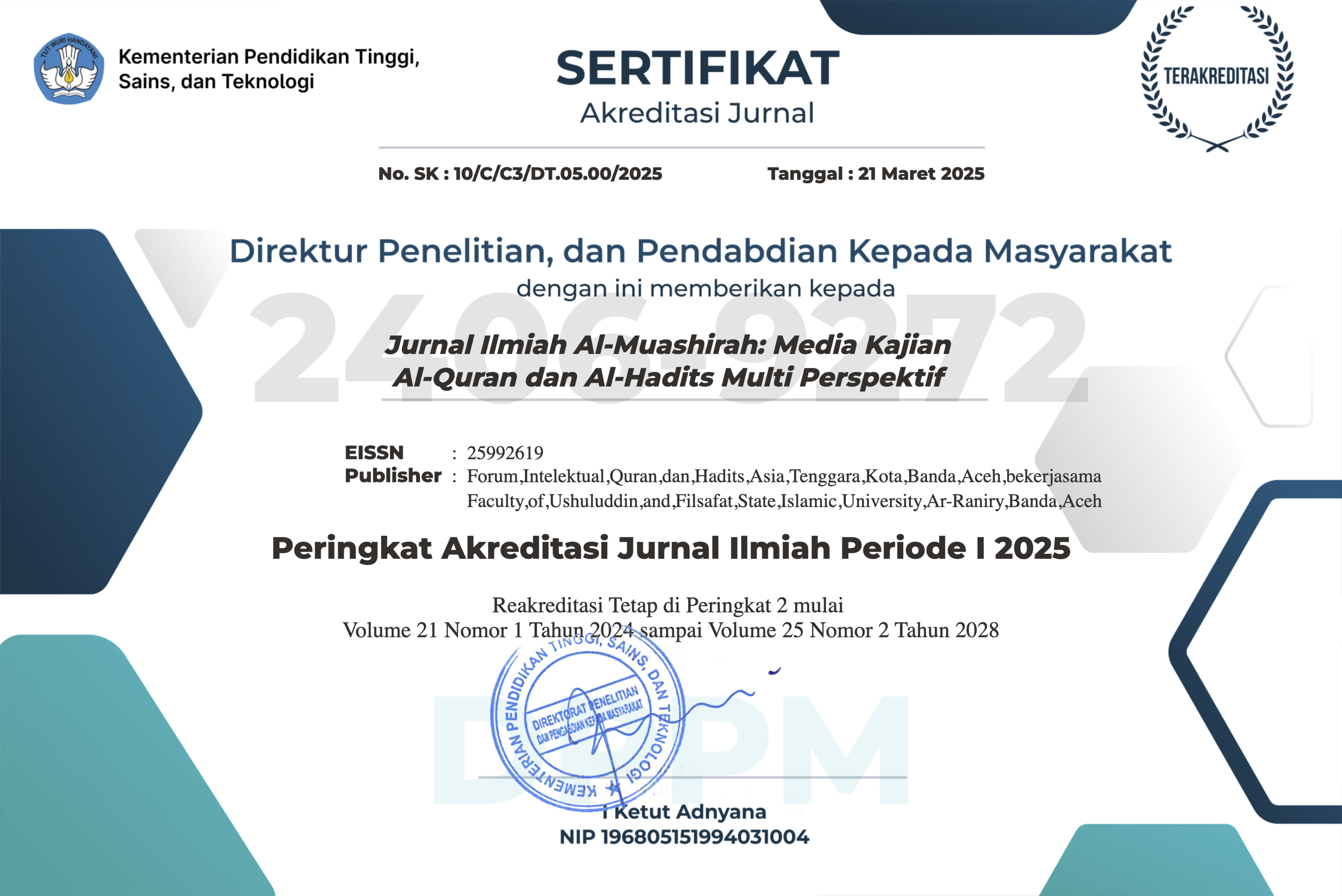HIDAYAH DALAM PANDANGAN AL-QUR'AN
DOI:
https://doi.org/10.22373/jim.v16i1.5742Keywords:
Hidayah, al-Qur'anAbstract
Menyangkut kebutuhan manusia terhadap hidayah, al-Qur’an memberikan perhatian yang serius, salah satu bentuk perhatian dan tuntunannya terhadap konsep hidayah adalah perintah untuk membacanya dalam setiap rakaat shalat, hidayah secara makna adalah bimbingan dari Allah swt. Dalam menjalani hidup, hidayah adanya memang diberi dan ada pula keharusan untuk mencari serta dipelihara di dalam diri setiap muslim. Hal ini penting, karena satu kemustahilan seseorang selamat sampai ke tujuan apabila tanpa hidayah. Karenanya seseorang harus tahu cara-cara untuk mendapatkan hidayah. Dan seseorang juga harus mengetahui bagaimana cara melestarikan hidayah dalam dirinya.
Downloads
References
Al-Munjid fil lughah wal’a’lam, Maktabah al-Syarqiyah Dar-al-Masyriq, Beirut Libanon.
Departemen Pendidikan Nasional, Kamus Besar Bahasa Indonesia, Edisi ke 4, Jakarta Gramedia Pustaka Utama, 2008.
Hans Wehr, A Dictionary of Modern Arabi,c edited by J Milton Cowan, Spoken Language Service. Inc 1976.
https://m.republika.co.i Kamus al-Muhith
M Quraish Shihab, Tafsir Al-Mishbah, Pesan-kesan dan Keserasian Al-Quran. Vol 1, Lentera hati: Ciputat Jakarta.
Downloads
Published
Issue
Section
License
Authors who publish in Jurnal Ilmiah Al-Mu'ashirah agree to the following terms:
- Authors retain copyright and grant the journal right of first publication with the work simultaneously licensed under a Attribution-ShareAlike 4.0 International (CC BY-SA 4.0) License that allows others to share the work with an acknowledgment of the work's authorship and initial publication in this journal.
- Authors are able to enter into separate, additional contractual arrangements for the non-exclusive distribution of the journal's published version of the work (e.g., post it to an institutional repository or publish it in a book), with an acknowledgment of its initial publication in this journal.
- Authors are permitted and encouraged to post their work online (e.g., in institutional repositories or on their website) prior to and during the submission process, as it can lead to productive exchanges, as well as earlier and greater citation of published work (See The Effect of Open Access).













